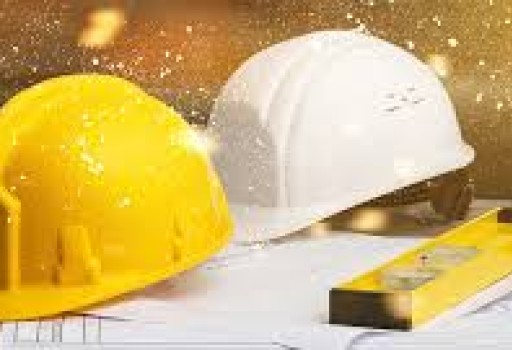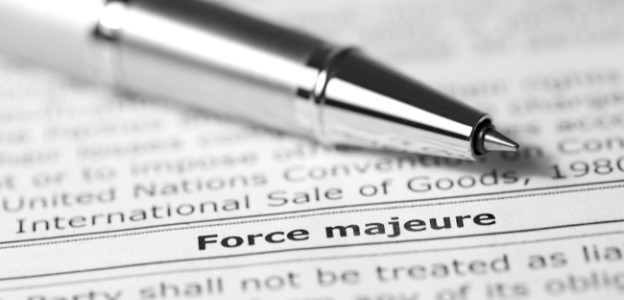30 April 2020
Returning To Work In The Construction Sector During Covid-19
Authors

What you need to know
In this article, we consider what New Zealand moving down the Covid-19 Alert Levels means for you if you are re-commencing business in the construction sector.
Existing Contracts
Your existing projects will have suffered construction delays and may continue to do so for a number of reasons.Many projects will be hindered by the incidental effects caused by the lockdown, whether it be by logistical issues or compliance with the more stringent health and safety requirements.
How a contract for an existing project responds to this situation will depend on its terms.You need to review the underlying terms of your contract on each project to confirm, as a contractor:
Whether you are able to claim an extension of time for the completion of your works in the project;
What time restrictions are in place for the serving of notices under the contract for matters such as claiming an extension of time;
Whether you are able to claim any additional costs incurred due to the delays caused by the lockdown;
Whether you may liable for any costs due to late performance (such as liquidated damages);
What security you have for payment of your costs.
NZS 3910:2013
While any given project is subject to the terms of its own contract (including standard terms where appropriate), we have considered in this article how the Standards New Zealand Contract 3910:2013 (Conditions of Contract for Building and Civil Engineering Construction) (“3910”) responds to the effects of the Government’s Alert Levels (although, this form of contract is often amended with special terms).
The following is a brief summary of the provisions of 3910 which may have been triggered by the effects of the restrictions imposed by the Alert Levels.
Events of Delay:
Clause 10.3 governs the extension of time procedure under 3910.A contractor is entitled to an extension of time (but not time-related costs) for circumstances that are not “reasonably foreseeable by an experienced contractor at the time of tendering and not due to the fault of the contractor”.The Engineer to the contract is responsible for assessing an extension of time claim.The Engineer must act fairly and impartially.
The Government imposed lockdown would likely fall within the scope of this clause but, due to the phrase “reasonably foreseeable”, this is dependent on when the contract was signed or the tender accepted. Incorrectly relying on this clause could be costly for the party seeking to rely on it.
However, it is extremely important that a notice claiming an extension of time is given within the timeframes required under the contract, otherwise the right to the extension will be lost.
Possible variation claims:
While the contractor is not entitled under 3910 to claim additional costs caused by an extension of time, it is entitled to claim a variation for a number of other circumstances which could be relevant, including:
Clause 2.7.17: where the Engineer or the Principal is late in issuing any instructions, documents or drawings to the contractor.
Clause 4.2.6: where the contractor validly terminates a contract with a subcontractor that was nominated by the Principal or the Engineer, any subsequent delays or additional costs may be claimed by the contractor as a variation. This could be particularly relevant where the nominated subcontractor has become insolvent as a result of the lockdown.
Clause 5.11.10: where any change in law causes an increase or decrease of the costs to the contractor of performing the contract.
Clause 5.16: where the Principal is late supplying any materials, services or work required to be supplied by the Principal.
Clause 6.7.1: this clause allows the Engineer to suspend all or part of the works if it “becomes necessary”. It is conceivable that an Engineer exercises its obligations under this clause particularly if it considers it necessary to comply with health and safety obligations. If so, the contractor is entitled to claim a variation for any increased costs (unless the suspension is due to a default on the part of the contractor).
Early Warning obligations:
Clause 5.21 requires that both the contractor and the Engineer must notify each other in writing as soon as either of them become aware of any matter that is likely to materially alter the contract price, delay completion of the works, or result in a breach of a statutory duty in connection with the works.A failure to do so on the part of the contractor is likely to effect the amount that it may claim as a variation and whether such a claim is accepted at all.
Force Majeure and Frustration:
3910 does not contain any force majeure provisions but it does include the ability for the Principal or the contractor to terminate the contract if either considers that the contract has become impossible of performance or has been otherwise frustrated. We consider it unlikely that this clause would apply, however this will depend on the circumstances of each given project.
Health and Safety:
We have made some general comments below regarding the health and safety requirements on a construction site as a result of Covid-19.Each party’s contractual health and safety obligations are set out at clauses 5.7 and 5.17 of 3910 and it is important that these provisions are referred to when preparing a Covid-19 site safety plan and giving instructions to persons on site.
Future Contracts
The immediate future in New Zealand is uncertain but we have seen the effects caused by Alert Levels 4 and 3, some of which we have referred to above.For new projects, we strongly encourage you to consider how you can protect your business going forward by addressing the issues which you have faced in any new contract. There are a number of issues that you should consider addressing in a new contract, including:
Your security for receiving payments due under the contract;
The possibility of New Zealand reverting back to Alert Level 4 (particularly if we suffer a “second wave” of the virus), and, by calling on your recent experiences in Level 4, what contractual remedies you need;
The possibility of the construction site being closed due to a person on site contracting Covid-19; and
The inevitable construction delays.
You can mitigate some of these risks by conducting due diligence before entering into any contract.Due diligence should be conducted both on the other party to the contract (including solvency risk and the experience of that party) and a review of the Covid-19 health and safety plan for the project.
Health and Safety
The construction industry is particularly subject to obligations under the Health and Safety at Work Act 2015 (“Act”), with many members of the industry falling within the scope of the definition of “a person conducting a business or undertaking (“PCBU”)”, or an “officer” of the PCBU (“Officer”).
The principal duty under the Act for a PCBU and an Officer is to ensure so far as is reasonably practicable the health and safety of any workers and other persons while the conduct of the business or undertaking is carried out. Any infectious disease encountered in the workplace is considered a workplace hazard.
Below are some practical tips for you to follow:
Regularly check Worksafe New Zealand’s website for the Government’s latest guidance on managing the risk of spread of Covid-19 in the workplace.
Identify what risks are likely to be on site that you need to mitigate. Discuss with your staff and contractors what they consider to be significant risks.
Prepare a Covid-19 safety plan and share that plan with your workers. It will be essential that you go over what measures are required from your workers at your daily health and safety briefings. There are a number of templates available online which you may wish to use.
Ensure that the people on site are aware of their physical distancing and hygiene obligations, and enforce them.
Bear in mind and consider your staff and contractor’s mental health. Mental health falls within the wide scope of the Act and is of equal importance to physical health risks. You might consider reducing workloads, ensuring timelines are manageable, and having regular “check-ins” with staff.
Maintain high hygiene standards, and enforce a mandatory health hygiene policy on all members on site.
Have a contingency plan for if a worker or contractor tests positive for Covid-19, to mitigate the risks to the health of other workers and contractors. If a site is closed due to a positive test being traced back to your site, not only could you be liable to the Principal of the contract for delays and costs (depending on the terms of the contract), if it can be shown that you did not have adequate measures in place in respect of health and safety obligations, you could have potential personal liability under the Act.
Construction Health and Safety New Zealand has produced Covid-19 Construction Protocols to provide for minimum requirements for mitigating health and safety risks on a construction site. It is important that you incorporate these measures in your safety plan.
Finally, follow the Government’s “Golden Rules” have been issued for businesses, and keep up to date with changes in recommended health and safety guidelines:
If your business requires close physical contact, it can’t operate.
Your staff should work from home if they can.
Customers cannot come onto your premises (unless you are a supermarket, dairy, petrol station, pharmacy or permitted health service)
Your business must be contactless. Your customers can pay online, over the phone or in a contactless way. Delivery or pick-up must also be contactless.
Basic hygiene measures must be maintained. Physical distancing, hand washing and regularly cleaning surfaces. Workers must stay home if they are sick.
If you used PPE in your business before COVID-19, then keep using it in the same way. If you didn’t use PPE in your business before COVID-19, you don’t need it now. This is advice for retailers, manufacturers and the service industries. Different advice applies to essential healthcare workers, border agencies, courts and tribunal staff, first responders and corrections staff.
You must meet all other health and safety obligations.
Disclaimer
The above information is of a general nature only; in no way does it constitute legal advice. All readers should contact a law firm for advice relating to their specific circumstances.









